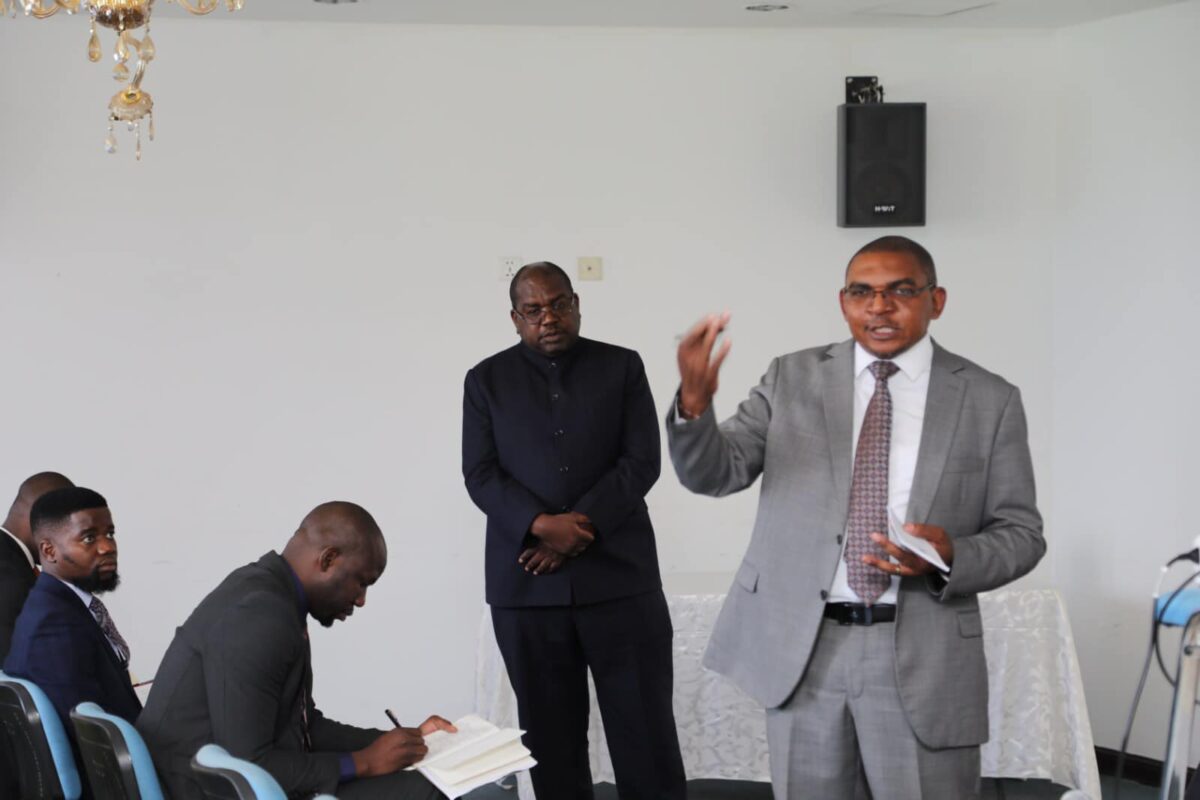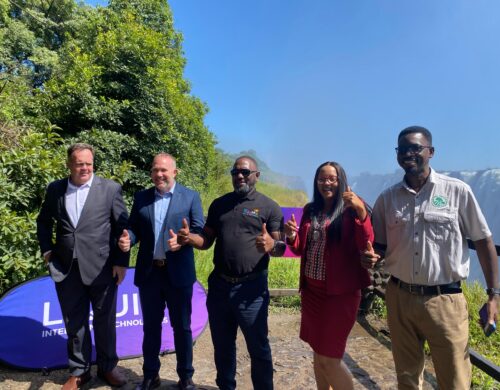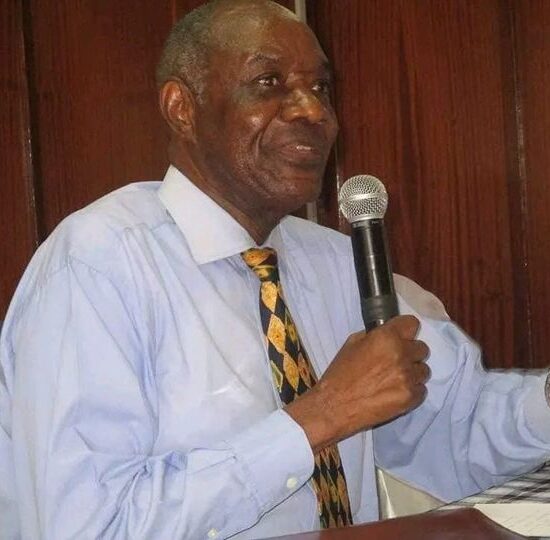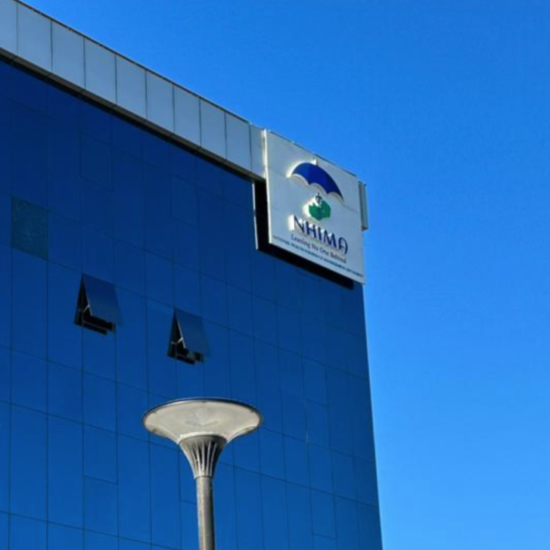
The Water Resources Management Authority -WARMA, has appealed to Members of Parliament –MPs- to help influence policy change that will allow for commercial entities to pay the full amount of water usage as opposed to being subsidized.
WARMA Director General Engineer Kenneth Nyundu said only vulnerable communities should be subsidized noting that the money should be channeled to subsidize those who do not have portable water in rural communities, but that those using water for commercial purposes should be able to pay for it. He said commercial entities only pay about a percentage thereby not contributing to the management of the resource.
Speaking during a meeting attended by the Zambian Business Times-ZBT, with Parliamentarians, and members of the Energy, Water, and Tourism, Planning and Budgeting Committee, aimed at educating them on the challenges being faced by the authority in ensuring the sustainability of the source, Nyundu said more emphasis has been placed on water supply which is important, but noted that the source is being neglected.
“So when the source dries, these will be white elephants, there will be no water to supply. It is commendable that investment has been done in this to make sure that we have infrastructure in place, but it is time we addressed this part because from our information, water availability is diminishing” said Nyundu. He noted that some time back in the 1960s, per capita availability of water resource thousand cubic meters, but is now at five thousand per capita due to population increase.
Nyundu warned that Zambia will face a crisis if the country continues ignoring the water bodies which are supposed to sustain it as there will be no water to supply, but infrastructure in place. He said serious attention needs to be given to this sub sector to ensure that the country secures what it has, as opposed to waiting until the country is in an awkward situation like some countries in the region.
Nyundu said that for the authority to be fully operational, the budget needed annually is 249.8 million without capital expenditure. He however noted that currently the authority is lingering around 61 million, with government grants which are around 18.5 million, and a financing cap of 169. He said with this, the authority is stuck and cannot progress.
“Whatever we get in terms of fees, we are only able to discharge 30 percent of our mandate. We cannot move forward, and the reason is simple, the numbers we cannot employ, we do not have state of art equipment and tools to use” said Nyundu.
He reemphasized that that the annual budget need to 385 million kwacha against the less than 100 million kwacha being used now to operate.
He disclosed that currently there are about 2,139 individuals, and entities that have been permitted to use water commercially, but are not paying enough to help maintain the resource in comparison to what they use.
Nyundu said the numbers are good, but because of the fee structure used 1,519 out of the 2,139 pay from the ranges of K10 to K3, 000 only. “What the majority pay is very little. The following category which is paying between 3,000 and 100,000 per annum are only about 500, and the bigger guys who are able to pay us more than 100 thousand per annum are only 120” disclosed Nyundu.
He added that the increase in population and economic activities is literally impacting on the country’s risk resource in terms of pollution, and that if there is no capacity to manage it, it will be a disaster especially for ground water which is difficult to clean up. He said there is need to prevent than to start curing.
Nyundu noted that the increase demand for development of land has led to people are building in the river birds where it is supposed to be recharge area, claiming marshlands, swamp areas, and seem not to understand why such areas should not be tempered with. He explained that these areas are the ones that are supposed to sustain the flow of water in rivers throughout the year.
“So when it is not raining, these are the areas which discharge that water they keep to the rivers for the rivers to flow. Most small rivers here in Lusaka have dried up because where the marshlands were supplying which were the source of water for those, we have since built, and we get surprised when the rivers are dried up” said Nyundu.
He added that deforestation has also contributed to the reduction of water availability, noting that there is too much evaporation, and runoff. He said this is what is leading to load shedding; noting that load shedding is not an energy problem, but a water problem evidenced by the dependence on hydro power.
Nyundu further mentioned that local authorities continue to move on within their mandate to things without consultation from an institution like WARMA which is negatively impacting on the resource. He also mentioned that there is no appreciation of the value water resources have and bring to any product or service being given. Nyundu said that if the country continues in this trajectory, the capital availability of water will reduce to 1, 000, and will be no different from water stressed countries like Botswana, and Namibia among others, and will be too late to reverse it.
He said due lack of resources, the authority is failing to map the country to ensure that areas of need are identified and declared as protected areas for future use owing to the increasing population.
Nyundu has therefore appealed to members of parliament to fully support the water sector particularly the subsector of Water Resource Management, and appreciate the challenges being faced.
Nyundu therefore said there is need to influence policy change, which can only be done through the members of parliament. He has called on the MPs to support bills that will be presented in parliament by the responsible minister in a bid to secure the natural resource and avoid a water crisis.
And Acting Chairman for the joint Committee of Energy, Water and Tourism, Planning and Budgeting Committee, Dr. Chitalu Chilufya who is also MP for Mansa Central has called on WARMA to review the system to make it transformational to ensure resilient and sustainable financing, and translate Zambia’s into wealth for the people.
He noted that the members have heard WARMA’S challenges on financing, and has urged that the authority’s system must include sustainable and resilient financing. He noted that relying on grants may not adequate. He has advised the authority to engage stakeholders to ensure that the process of reviewing fees is expedited. “You do need to be apologetic charging those small fees when people are actually making huge profits” said Chilufya. He He has therefore assured WARMA the support of the MPs.









